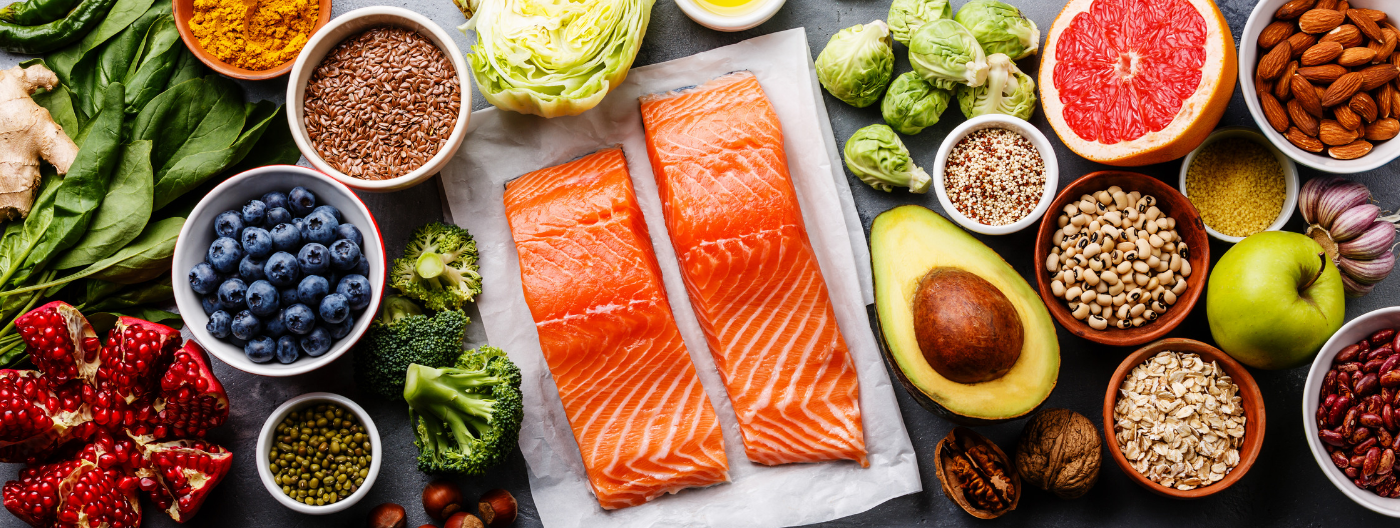Hip replacement surgery is a transformative procedure that enhances mobility and quality of life. Post-surgery, proper nutrition plays a crucial role in supporting the healing process, promoting bone health, and minimizing inflammation. In this blog post, we will find out the food items that prove to be useful to consume after hip replacement surgery, and also help individuals make informed choices for their optimal recovery. 1. Protein-Rich Foods: Protein is essential for tissue repair and muscle strength, making it a cornerstone of post-hip replacement nutrition. Include lean protein sources such as poultry, fish, eggs, dairy, legumes, and tofu in your diet. Collagen-Rich Foods: Collagen is crucial for the healing of connective tissues. So start having foods that are enriched with collagen such as bone broth, chicken skin, and fish skin and include it into your meals. 2. Calcium and Vitamin D: Calcium is vital for bone health, while vitamin D aids in calcium absorption. Both stand important for maintaining stronger bone health, especially during the phase of recovery. Dairy products, fortified plant-based milk, leafy greens, and small fish with bones are excellent sources of calcium. Sun Exposure: Spend some time in the sun to naturally boost vitamin D levels. Consult with your healthcare provider about appropriate supplementation if needed. 3. Omega-3 Fatty Acids: Omega-3 fatty acids possess anti-inflammatory properties, aiding in the reduction of inflammation and supporting joint health. Fatty fish like salmon, mackerel, and trout, as well as flaxseeds, chia seeds, and walnuts, are rich sources of omega-3s. Fish Oil Supplements: Consider fish oil supplements under the guidance of your healthcare provider for an additional omega-3 boost. 4. Antioxidant-Rich Foods: Antioxidants help combat oxidative stress and inflammation, contributing to overall joint health. Include a variety of colorful fruits and vegetables such as berries, cherries, spinach, kale, and broccoli in your diet. Herbs and Spices: Turmeric and ginger are known for their anti-inflammatory properties. Incorporate them into your cooking or consume as teas for additional benefits. 5. Whole Grains: Whole grains provide essential nutrients like fiber, B vitamins, and minerals, contributing to overall health. Opt for whole grains such as brown rice, quinoa, oats, and whole wheat, promoting sustained energy levels and digestive health. Limit Processed Foods: Reduce the consumption of processed and refined carbohydrates, as they may contribute to inflammation. 6. Hydration: Staying well-hydrated is crucial for the healing process and overall health. Water, herbal teas, and broths are excellent hydration choices. Just put a limit on the consumption of sugary beverages and caffeinated drinks. Electrolyte Balance: Consider incorporating electrolyte-rich beverages or foods to maintain proper electrolyte balance, especially if you’ve experienced any fluid loss during surgery. 7. Fiber: Adequate fiber intake supports digestive health, which can be particularly important during the recovery period when mobility may be limited. Include food items that are totally rich in fiber such as whole grains, fruits, green vegetables, and legumes in your feed. Probiotics: Incorporate probiotic-rich foods like yogurt or fermented foods to support a healthy gut microbiome. 8. Vitamin C-Rich Foods: Vitamin C is essential for collagen synthesis, aiding in the repair of tissues and wound healing. Start consuming more such foods like citrus fruits, strawberries, bell peppers, and broccoli as they possess all the essential sources of vitamin C. Supplementation: If necessary, talk to your healthcare provider about vitamin C supplements to ensure optimal levels for healing. 9. Moderate Caloric Intake: While proper nutrition is crucial, it’s essential to manage caloric intake to prevent excessive weight gain during the recovery period. Focus on nutrient-dense foods to meet your nutritional needs without unnecessary caloric excess. Consult a Dietitian: If you have specific dietary concerns or restrictions, consider consulting with a registered dietitian for personalized guidance. 10. Avoid Inflammatory Foods: Some foods can exacerbate inflammation, potentially hindering the healing process. Limit or avoid processed foods, refined sugars, and excessive consumption of red meat. Limit Trans Fats: Minimize the intake of trans fats found in many processed and fried foods, as they may contribute to inflammation. 11. Meal Timing and Structure: Distribute your meals throughout the day to maintain a steady supply of nutrients for healing and energy. Include a balance of macronutrients (protein, carbohydrates, and fats) in each meal for sustained nourishment. Snacking Options: Choose healthy snacks like nuts, seeds that can be eaten as a part of snacking option and will provide you essential nutritional value too. Conclusion: As advised by your orthopedic surgeon in South Delhi, take proper care of your diet and nutrition as it plays an important role in healing, managing your levels of inflammation, and even providing support to overall recovery. So one must consume foods that stay well-balanced and also help in promoting optimal health and enhancing your process of healing once you undergo hip replacement surgery in Delhi.














